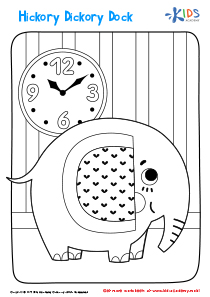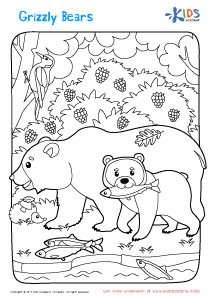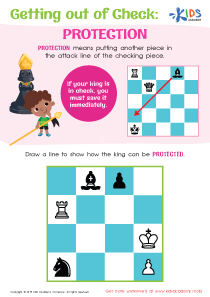Science Quizzes for 7-Year-Olds
21 results
21 filtered results
Clear all filters21 filtered results
-
From - To
Dive into the fascinating world of science with our Interactive Assessment Quizzes, specially designed for 7-Year-Olds! These quizzes are not just tests; they're a fun and engaging way to explore scientific concepts and check knowledge. As your child answers each question, they receive instant feedback, helping to reinforce learning and encourage curiosity. From the mysteries of outer space to the wonders of the natural world, our Science for 7-Year-Olds quizzes make learning an exciting adventure. Perfect for young scientists in the making, these quizzes will spark a passion for discovery and lay the foundation for a lifelong love of science.
Interactive quizzes on Science for 7-Year-Olds are an innovative and effective educational tool that plays a crucial role in enhancing the learning experience for young children. In an era where information is abundant and attention spans are challenged, engaging children in their studies, especially in a subject as expansive as science, requires creative approaches. These interactive quizzes are tailored specifically to cater to the curiosity and learning pace of 7-year-olds, making science both accessible and enjoyable.
Firstly, these quizzes are designed with the cognitive and developmental stages of 7-year-olds in mind. At this age, children are naturally inquisitive, eager to explore the world around them and ask questions about how things work. Science for 7-Year-Olds through interactive quizzes leverages this natural curiosity by presenting scientific concepts in a playful, story-driven format. This approach not only keeps children engaged but also helps in retaining their interest in the subject matter.
Moreover, interactive quizzes provide immediate feedback, an essential feature for effective learning. When children answer questions, they learn right away if their answer is correct or not, and often, these quizzes offer an explanation for the correct answer. This instant feedback loop encourages children to understand the concept rather than just memorize facts. It also boosts their confidence as they see real-time progress in their understanding of scientific concepts.
The gamified nature of these quizzes adds another layer of engagement. Gamification in education has been proven to enhance motivation and concentration among students. By incorporating elements like points, levels, and badges, Science for 7-Year-Olds interactive quizzes turn learning into a fun and competitive game. This not only makes the learning process enjoyable but also encourages children to challenge themselves and reach higher levels of understanding.
Adaptability is another significant advantage of these interactive quizzes. Children have varied learning paces and styles. Interactive quizzes often come with different levels of difficulty and diverse types of questions (multiple-choice, true or false, fill in the blanks, etc.), making it possible to tailor the learning experience to each child’s needs. This personalized learning approach ensures that no child feels left behind or unchallenged, thereby promoting an inclusive learning environment.
Furthermore, interactive quizzes on Science for 7-Year-Olds introduce children to the use of technology in learning. In a world increasingly dependent on digital skills, familiarizing children with technology from a young age is essential. These quizzes are not only about learning science; they are also about developing digital literacy, which is a critical skill in today’s world.
In conclusion, interactive quizzes on Science for 7-Year-Olds are a valuable educational resource. They transform learning from a passive to an active process, where children are not mere recipients of information but active participants in their learning journey. By making science fun, interactive, and accessible, these quizzes lay a strong foundation for a lifelong love of learning and curiosity about the world. As children navigate through these quizzes, they not only learn scientific facts and concepts but also develop critical thinking, problem-solving skills, and a positive attitude towards learning.













